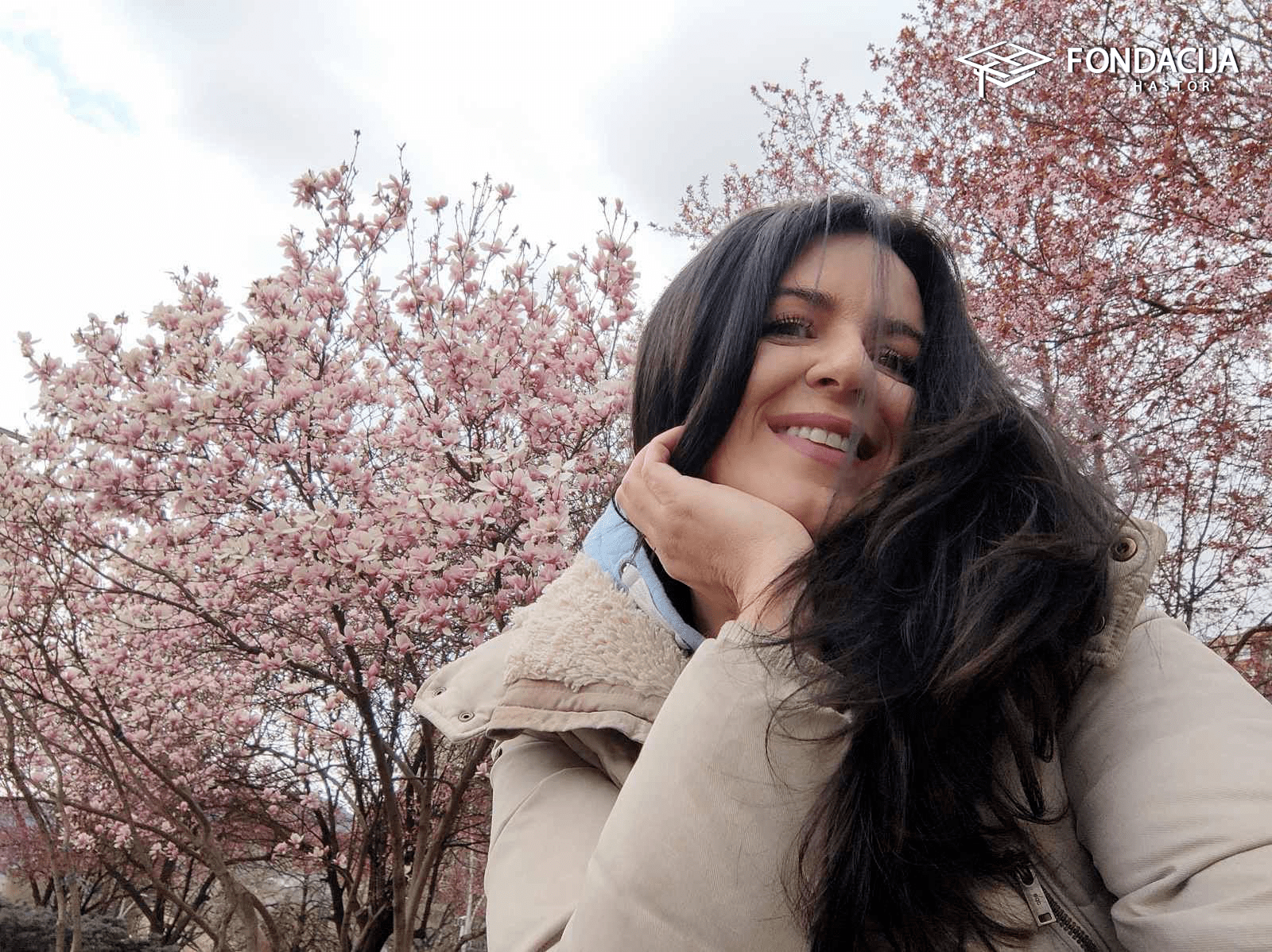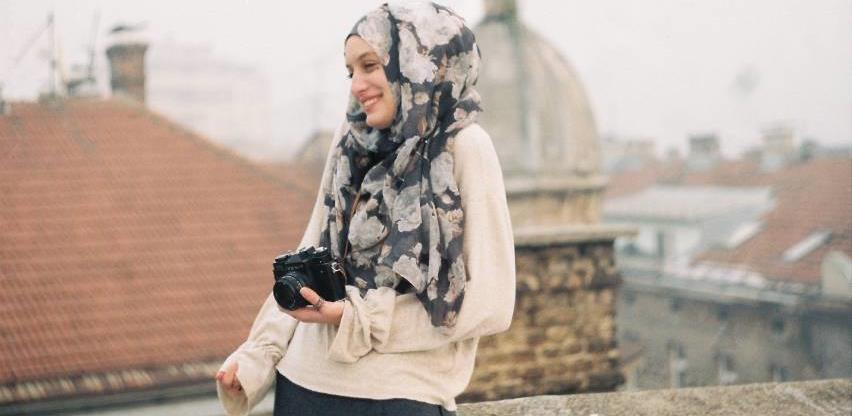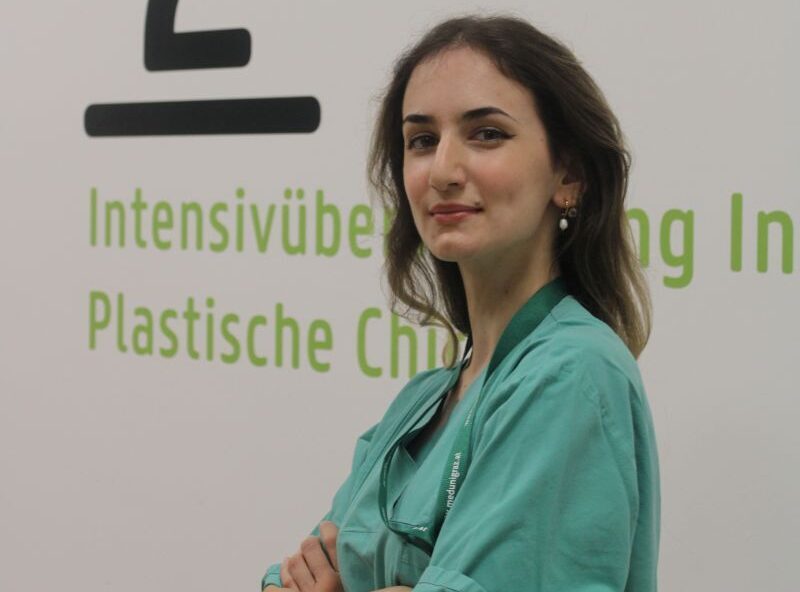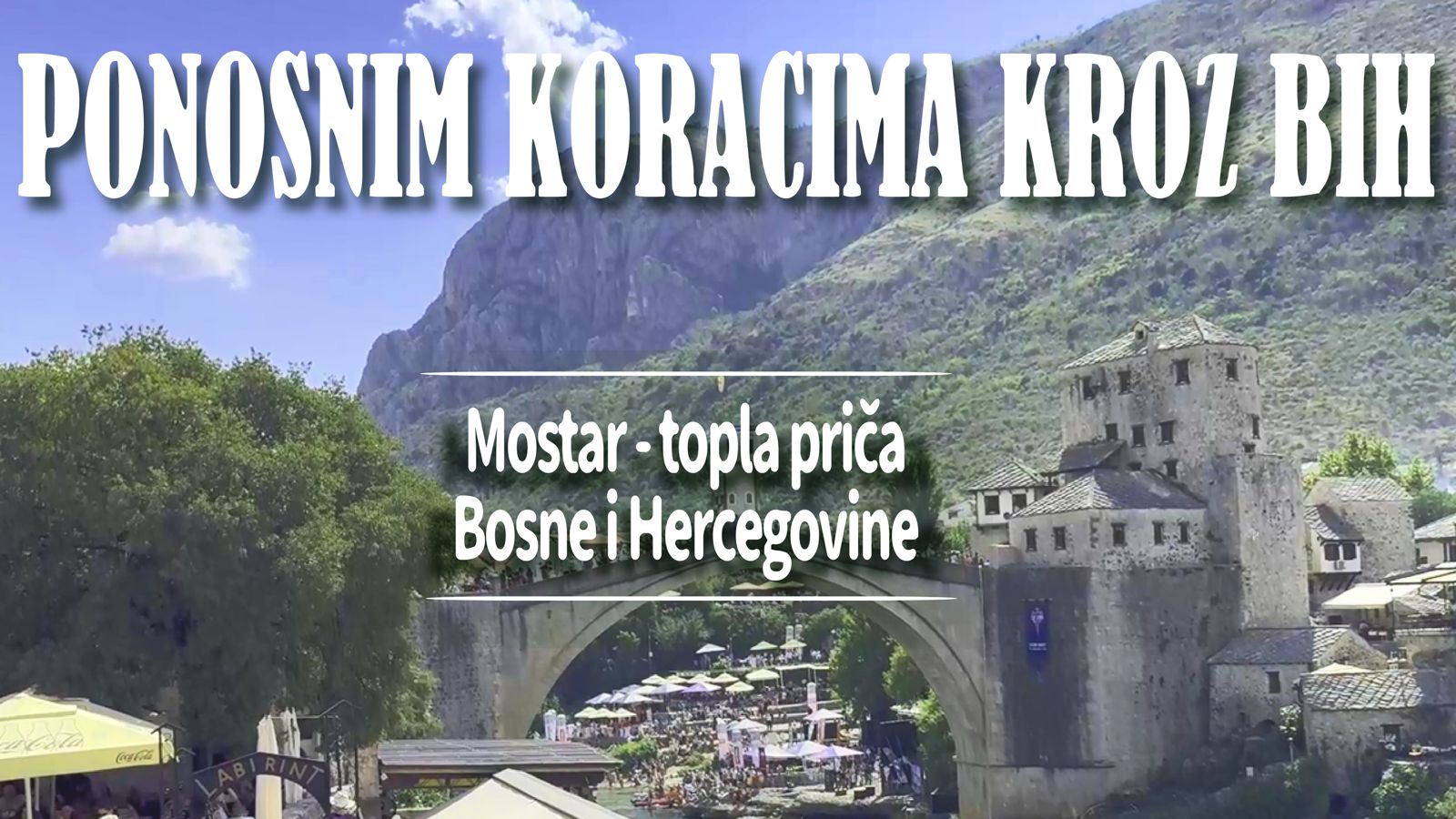Even after completing education, each scholarship holder of the Hastor Foundation remains an important part of its community. The Foundation proudly looks at the successes of its former scholarship holders, because the Foundation itself, at least partially, contributed to achieving those successes. In the text below, we bring you the story of the former scholarship holder Emina Sijahović, who works today as a teaching assistant at the Faculty of Agriculture and Food Sciences, University of Sarajevo.
Her story began in Novi Šeher, near Maglaj, where she finished elementary school, and then graduated from the General-Program Secondary School “Edhem Mulabdić” in Maglaj. After graduating from secondary school, she enrolled in the Faculty of Agriculture and Food Sciences at the University of Sarajevo, where she majored in fruit growing and wine growing at the Department of Plant Science. In the third, and final year of the first cycle of studies.
At the interview, what interested them the most was how I managed to come from a small place to Sarajevo in order to study, even if my parents did not have any financial income. I explained to them that my mother was a tailor, and that she had a sewing machine at home and she always worked on it. My father was an agricultural worker, so we could sell milk and wood. They somehow found courage to send me to college studies, because I – as an excellent student at the secondary school – did not have any other plans.
When discussing college with her parents, Emina originally planned on finishing only the first cycle of studies and finding a job afterwards; from the experiences of her older colleagues, she knew that the probability for something like that was small, even for the best students in the first cycle. So, she decided to continue her college education at the Department of Floristics and Landscape Planning, from which she graduated and became a recipient of the “Golden Badge”, an honorary award of the University of Sarajevo, as the best student in the second cycle of studies. She was the Hastor Foundation’s scholarship holder for three straight years, and a volunteer for a longer period than that. During her work as a volunteer at the Foundation, she volunteered with pupils from elementary and high schools in Maglaj, was a member of the editorial board, as well as a member of the Foundation’s administration team.
Several times, I was the person with the most hours spent in the field work. While volunteering in the office, we wrote letters to the students all around Bosnia and Herzegovina, encouraging them to strive for excellence, empathy, and the continuation of working on themselves and their education, by providing them with personal examples of how poverty, distance, and being different cannot and must not be an obstacle on their road to a brighter future. I enjoyed that task so much that, in one day, I wrote and sent 70 letters. Later on, I met a scholarship holder at my faculty who told me that I was the one who was sending him letters while he was still in high school; and that he decided then to enroll in my faculty. We are friends today and he works in the field for which he was educated.
Emina says that, after her finished studies, and in spite of all the awards and certificates, it wasn’t easy to find the first job without work experience, but even in that situation, she wasn’t devoid of the Foundation’s support.
They organized for us a two-month training program called “The program for the development of interns” with skilled lecturers who were preparing us for entering the business world, which gave us a chance to have one month of volunteer work at the companies they had good collaboration with. I suppose there were 14 of us scholarship holders who had finished formal education and who were given a chance to try themselves for one month at different companies. Considering the Foundation has only the best scholarship holders, some of the people still work at those companies.
Emina received a chance to work at “Coca-Cola”, within the department for controlling the quality of beverages, where everybody was very satisfied with her work, so her contract was extended for another six months. After which she received an opportunity to work as an agronomist at the company “ITC” in Zenica, something which was closer to her actual profession. Today, she works as a teaching assistant at the Faculty of Agriculture and Food Sciences, where she is also in the final year of her PhD program. Besides her primary job, she does project planning and construction of gardens, which is, as she says, her biggest love.
I can express my own creativity doing that; I have contact with plants and nature all the time, which keeps my energy levels afloat, recharges batteries, and also gives me a sense of freedom, expands horizons, because that is a job to which I can apply the knowledge I collected through formal education, as well as my personal experience.
The most important things that she learned at the Hastor Foundation; that is, from the people who were leading it and who were a part of it, were: discipline, self-esteem, and the right way to enlist priorities in life. Emina says that she had been a shy girl before becoming a scholarship holder of the Foundation, who had not had the courage to loudly express her opinion, nor do things in the way she had thought was correct. Today, while recalling her own case, she feels that the Foundation reached its goal, the goal being for all the scholarship holders to become self-conscious figures through education, to become strong through individual work; but, at the same time, to be a strong branch in the team work, to be determined and resolute persons with good communication and presentation skills, as well as the skills to turn unpredictable situations in life into an important element of motivation.
My message to the current scholarship holders is for them to be real ambassadors of the Hastor Foundation and to build inside themselves these values, as well as to apply them whenever and wherever they have a chance, because ours is only what we give. Do volunteer work, absorb, learn; exactly these might be your comparative advantages on the labor market!
After gaining her first work experience, she managed to get employed by two companies at the same time.
All of that was thanks to work habits that I adopted at the Foundation, among which, I would like to emphasize: accuracy (everything needs to be done before the deadline), efficiency (not to ask “how much time”, rather “what is the way”)… At the Foundation, we were learning how to properly place documents into a register stand; something which might have sounded absurd to us back then. However, later at work, when one of my colleagues dropped her entire file collection from the register stand because the documents were stored in plastic envelopes which were turned upside down (with the envelope opening being turned down, instead of up), I realized how important little things are and how applicable are the things we learned at the Foundation.
She claims that newly formed friendships are definitely among the most beautiful things that happened to her at the Foundation. She made best friends, met friends with whom she socializes even today, and also people of different nationalities coming from different cities who provide support to each other.
It is priceless when you find yourself in Mostar, Bihać, Goražde, Livno, Banja Luka, and when you have someone with whom you can meet up for a coffee, someone at whose place you can sleep or spend quality time with. That is the broadness given to us by the Hastor Foundation to which I can only relate the most beautiful memories. In today’s world, it is nice to have someone you can always rely on, no matter how old you are or where you are located. That is the Foundation to me, and I believe that I am that person to the Foundation, as well.
Prepared by: Alek Isaković
Translated by: Said Kamenica




